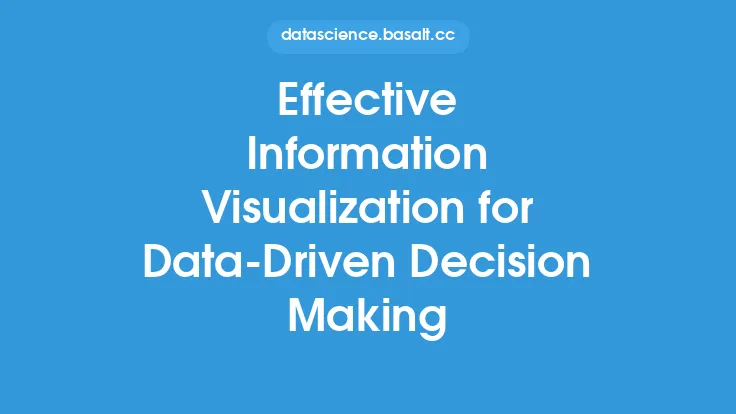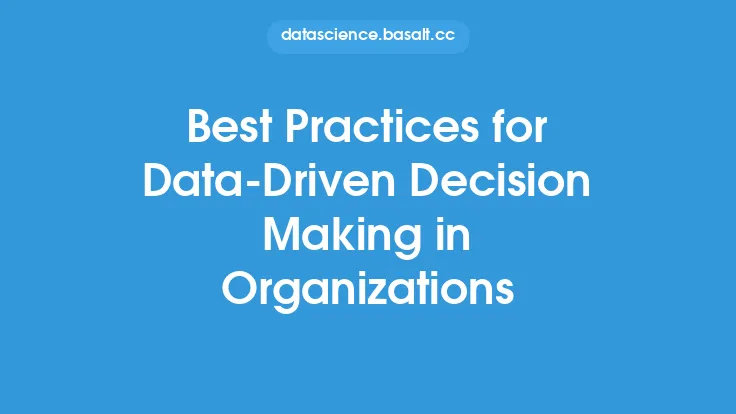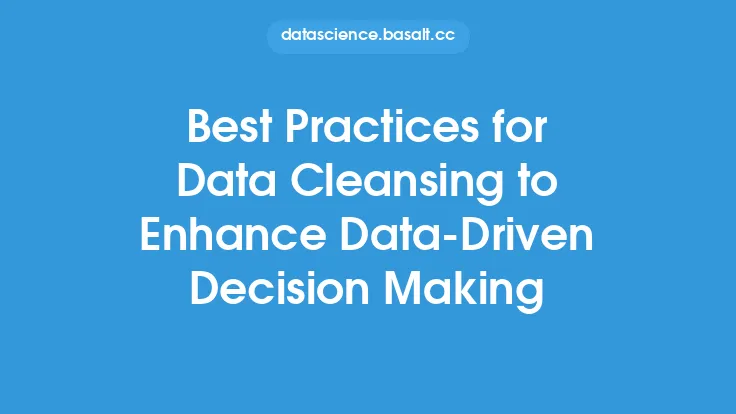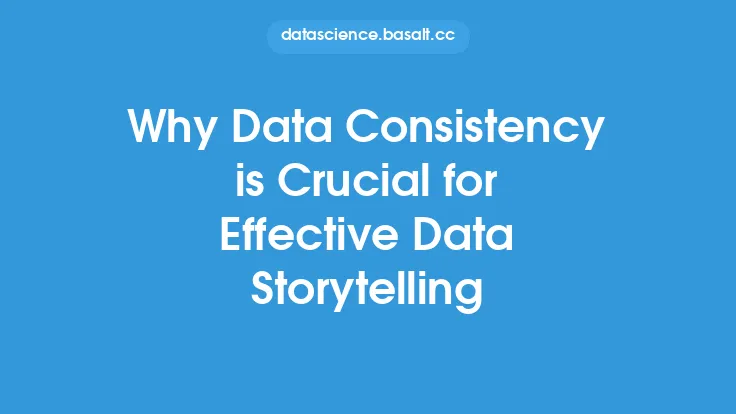In today's data-driven world, organizations rely heavily on data to make informed decisions. The quality of the data used in decision-making processes is crucial, as it directly impacts the accuracy and reliability of the insights gained. One critical aspect of ensuring data quality is data validation, which involves checking the data for accuracy, completeness, and consistency. Data validation is essential for data-driven decision making, as it helps to prevent errors, inconsistencies, and inaccuracies that can lead to poor decision making.
Introduction to Data Validation
Data validation is the process of verifying the accuracy and quality of data. It involves checking the data against a set of rules, constraints, and standards to ensure that it is correct, complete, and consistent. Data validation can be performed at various stages of the data lifecycle, including data entry, data processing, and data analysis. The goal of data validation is to ensure that the data is reliable, accurate, and consistent, which is critical for making informed decisions.
The Importance of Data Validation in Data-Driven Decision Making
Data validation plays a critical role in data-driven decision making. When data is accurate, complete, and consistent, it provides a solid foundation for analysis and decision making. On the other hand, poor data quality can lead to incorrect insights, poor decision making, and ultimately, business failure. Data validation helps to prevent errors, inconsistencies, and inaccuracies that can lead to poor decision making. By validating data, organizations can ensure that their decisions are based on accurate and reliable information, which reduces the risk of errors and improves the overall quality of decision making.
Types of Data Validation
There are several types of data validation, including format validation, range validation, and cross-validation. Format validation checks the format of the data to ensure that it conforms to a specific standard. For example, a date field should be in the format MM/DD/YYYY. Range validation checks the data to ensure that it falls within a specific range. For example, a salary field should be between $20,000 and $100,000. Cross-validation checks the data against other data to ensure that it is consistent. For example, a customer's address should match the address on file.
Data Validation Techniques
There are several data validation techniques that can be used to ensure data quality. These include data profiling, data cleansing, and data transformation. Data profiling involves analyzing the data to identify patterns, trends, and anomalies. Data cleansing involves correcting errors and inconsistencies in the data. Data transformation involves converting the data into a format that is suitable for analysis. These techniques can be used individually or in combination to ensure that the data is accurate, complete, and consistent.
Benefits of Data Validation
Data validation provides several benefits, including improved data quality, reduced errors, and increased confidence in decision making. By validating data, organizations can ensure that their data is accurate, complete, and consistent, which improves the overall quality of the data. Data validation also reduces errors, which can lead to poor decision making and business failure. Additionally, data validation increases confidence in decision making, as organizations can trust that their decisions are based on accurate and reliable information.
Challenges of Data Validation
Despite the importance of data validation, there are several challenges that organizations face when implementing data validation. These include the complexity of data, the volume of data, and the lack of resources. Data validation can be complex, especially when dealing with large datasets. The volume of data can also be a challenge, as it can be difficult to validate large amounts of data. Additionally, organizations may lack the resources, including time, money, and personnel, to implement effective data validation.
Best Practices for Data Validation
To overcome the challenges of data validation, organizations should follow best practices. These include defining clear data validation rules, using automated data validation tools, and continuously monitoring data quality. Clear data validation rules should be defined to ensure that the data is accurate, complete, and consistent. Automated data validation tools can be used to streamline the data validation process and reduce errors. Additionally, organizations should continuously monitor data quality to ensure that the data remains accurate, complete, and consistent over time.
Conclusion
In conclusion, data validation is crucial for data-driven decision making. It helps to prevent errors, inconsistencies, and inaccuracies that can lead to poor decision making. By validating data, organizations can ensure that their decisions are based on accurate and reliable information, which reduces the risk of errors and improves the overall quality of decision making. Organizations should follow best practices, including defining clear data validation rules, using automated data validation tools, and continuously monitoring data quality, to ensure that their data is accurate, complete, and consistent. By prioritizing data validation, organizations can make informed decisions, reduce errors, and improve their overall business performance.





